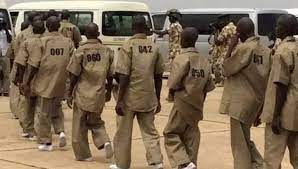The secretary-general, Women’s Rights Advancement and Protection Alternative (WRAPA), Saudatu Mahdi, has called on the government, communities, families and all other stakeholders to “see the need to recognise and affirm women as critical contributors in nation-building.”
Mahdi said the absence and weak commitments to the implementation of gender responsive legal and policy frameworks deprives the nation of critical human capital due to discrimination and exclusion.
She made the call Friday in Abuja, while delivering a keynote address titled, “Building Collaboration to Increase Women’s Empowerment Using Gender-Responsive Laws and Policies,” at the International Federation of Women Lawyers (FIDA) Nigeria 2022 Annual General Conference.
She stressed the imperatives to increase women’s empowerment, noting that they “make up 104.25 million of Nigeria’s population and form a significant percentage of its human capital asset in the informal sector.”
She also noted that legal and social empowerment entrenched in the legal and policy framework was a priority to equip and strengthen women’s agency for the benefit of all, adding that “gender responsive legal and policy empowerment is a development and justice issue.”
“Gender responsive legislations we are seeking include 30 per cent of party lists under the proposed Proportional Representation (PR) system should be reserved for women and two per cent for physically challenged persons in addition to representation under the First Past the Post (FPTP) system.
“Independent candidacy should be introduced to contest provided nomination is constituency based and affirmative action quota policy for participation in election administration (at least one third of the 774 local electoral officers shall be women),” she said.
The keynote speaker further called for the Electoral Act to be amended to establish an Electoral Offences Commission to engender accountability.
Earlier, in her welcome remarks, the country vice-president/national president, FIDA Nigeria, Amina Suzanah Agbaje, said the conference was aimed to proffer practical and lasting solutions, and key ideas that “can be effectively employed by all stakeholders in the quest to ending violence against women and children.”
“As female lawyers, we must take a stand in ensuring justice is served to our vulnerable population in Nigeria, as the true test of justice in a society lies not on the number of people with access to justice, but on the many who have little or no access to justice due to their vulnerabilities,” she said.




